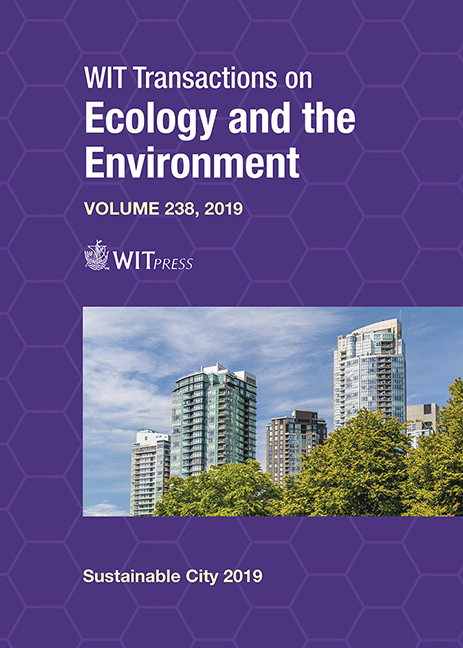PRAXIS OF CLIMATE CHANGE ADAPTATION IN DISASTER RISK REDUCTION: A SOUTH AFRICAN PERSPECTIVE
Price
Free (open access)
Transaction
Volume
238
Pages
11
Page Range
257 - 267
Published
2019
Paper DOI
10.2495/SC190231
Copyright
WIT Press
Author(s)
LOGANATHAN MUNSAMY
Abstract
Global warming is the rising of the earth’s temperature due to increased anthropogenic greenhouse gas (GHG) emissions resulting in climate change and causing extreme erratic weather. Furthermore, the adverse effects of climate change are an increase in poverty levels causing large scale death and destruction. Global climate change must be adequately addressed in accordance with international protocols if developmental goals are to be achieved. In addition to a literature review, the empirical study used a mixed approach with a pragmatic paradigm. Data sets were processed using the Statistical Package for Social Sciences (SPSS 24), achieving a coefficient correlation of 0.74 using the Cronbach’s alpha as a test measure. This study found that the existing disaster risk reduction (DRR) policies must be revised and amalgamated to ensure that development becomes sustainable; secondly, climate change adaptation (CCA) programs must be located within the appropriate government structures; thirdly, an effective climate change forum must be established; and finally, community structures must be strengthened to provide effective support for climate change policy development. South Africa is a fossil-fuelled energy-intensive, and relative to its economy, a major contributor to GHG emissions in Africa and its CCA policies are still in its infancy stages. For this reason, it needs a common national data collection instrument to measure carbon emissions and the impact thereof. Furthermore, there must be adequate political support for an effective monitoring and evaluation instrument to collect and analyse data to generate new knowledge regarding climate change and DRR as a single entity.
Keywords
climate change adaptation, disaster risk management, disaster risk reduction, global warming





